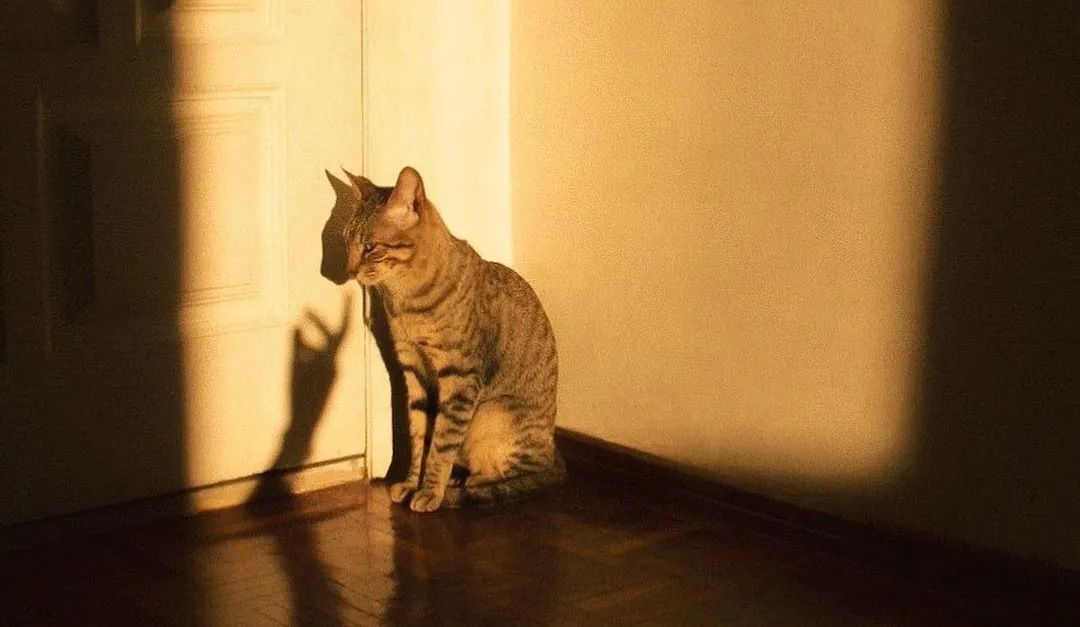The proud person may be "hidden inferiority."There are 8 performances here
Author:Knowing my psychology Time:2022.07.22
Is there such a person around you who look proud and see yourself very important. But once you walk into the TA, you will find that the hearts of the TA are inferior and fragile. In the heart, the TAs feel that they are not good, they are not liked, and they are not worthy of being loved.
Such people are actually "invisible inferiority". Let's discuss such hidden inferiority today.
In fact, inferiority is a very common emotion. It comes from the feeling of "incompetent" after making intentions or unintentional comparisons with others.
The feeling of "not comparable" can make people feel ashamed, and different people's behaviors of shame are also different. Some people choose to face up and actively respond, some chose to escape, while hidden inferiority chose to disguise.
The hidden inferiority wants to prove themselves through action to obtain pride to offset their shame. However, psychologists point out that pursuit of pride is the embodiment of low self -esteem.
In other words, although the TAs cover up inferiority, the behaviors of the TAs are still strongly compared with their inferiority. Driven by the sense of inferiority, it is difficult for hidden inferiority to feel really relaxed, because the TAs are always worried that they are not good enough to enjoy the happiness of confidence.
Are you trapped by such "hidden inferiority"? If so, what should I do? Look at today's article.

8 performances of "hidden inferiority"
1. Sensitive, afraid that you will not be needed
Hidden inferiority people are often very sensitive, and TAs will repeatedly chew others' comments and reactions to themselves.
Especially in front of the people I care about, these people responded casually, "It's okay, I can come by myself", and may be diverged by hidden inferior people into "Does TA do not need me?" "My show Well, is it annoying to others? "
Therefore, after entering the intimate relationship, the inferior inferiority will show more obviously. In front of the people they love, the TAs are particularly inferior, and they are always worried about whether the people they care about accept themselves and care about themselves.
Because once the TAs are not accepted by others, they will make the TA feel that they are worthless. TAs will be particularly anxious, worrying about the possibility of being excluded by the group, and the potential negative results that may bring after being rejected (Wray & Stone, 2005).
2. I especially like to pursue the certainty and security in life
Of course, we are not saying that all people who like to live stable are hidden inferiority.
Different from those who actively pursue the dull and stable life, the hidden inferiority choosing such a lifestyle is often out of a "having" mentality. TAs are afraid of facing the uncertainty in life, because inferiority has caused TA to be pessimistic in the face of uncertainty, and they cannot risk risks at the moment because they believe in the good possibilities of the future.
Affected by the low level of self -esteem, hidden inferiority people are easily lacking the willingness to adventure and exploration, and this in turn has reduced the possibility of encountering positive events that may help improve the level of self -esteem (Wray & Stone, 2005) It makes people fall into a stable, calm, but like a pool of dead water.
After making choices, TAs will use these evaluations to persuade themselves "such a life is the best choice."

3. Busy to catch up with the trend,
It's hard to get happiness from it
Many hidden inferiority are "tide" in the social circle. The TAs are keen to chase the most fashionable activities or wear, and are happy to organize the bureau. It looks very busy every weekend.
But unlike the real tide, even if the TAs have paid a lot of time, energy and money to catch up with the trend, the TAs cannot actually get the happiness of matching from the activity itself. Because compared to the activity itself, the main purpose of hidden inferiority participating in the activity is actually to obtain a better feeling of TA than others through social networking.
So the TAs forced themselves to pay attention to the most fashionable and popular things, and ensure that they maintain a more superior image that everyone will appreciate.
4. Because of inferiority,
It is fear to show the true self in front of others
Those who hidden inferiority are afraid of letting others know their fragile side, and strong and confident people can discuss the shortcomings or failures of the true self, and the hidden inferiority is very afraid of others knowing that they are not good enough.
Because the TAs do not like the true self, they can't believe that those who see the true themselves will have a positive attitude towards themselves.
5. Unknowingly want to please everyone
Hidden inferiority people are easy to unconsciously want to please everyone. The pleasing here is not as well as the bottom line of consent and concessions as the bottom lines, but that the TAs hope to leave a better impression in everyone’s hearts, even if the TAs don’t like it (Brown, Brown, Brown, Brown, Brown, Brown, Brown, Brown, Brown, Brown, Brown, Brown, Brown, Brown, Brown, Brown, Brown, Brown, Brown, Brown, Brown, Brown, Brown, Brown, Brown, Brown, Brown, Brown, Brown) N.D.).
Even if there is no need to please, the TAs are easy to be unconsciously catering in the process of speech or interaction. They recognize others to get the recognition of others.
Especially when people who have a bad attitude towards them, those who do not recognize them, accuse them, and criticize them will be more pleased by hidden inferiority. Because these people's impression of them is more in line with their self -awareness. They like to alleviate their inferiority by changing each other's attitude. 6. When falling in love,

Especially easy to suffer, I feel that I am not good enough
When you are in a close relationship, hidden inferiority is easy to have a mood of losing. TAs will unconsciously compare themselves with all potential "competitors". Even if their partners love themselves, the "competitor" does not mean to intervene.
The TAs will think that the love partner can give themselves quantified- "Because I have good -looking and excellent, so TA loves me."
Therefore, when a better and better person appears, the hidden inferiority will be a police bell in the brain of the inferiority, and you will start to worry about whether the partner will change his heart.
At the same time, low self -esteem will also bring some typical performance of unsafe inferiority to hidden inferiority. For example, TAs will intentionally or unintentionally keep a certain distance with their partners, to protect themselves in the relationship, or right right in the relationship, or right right. The shortcomings of the partner are extremely sensitive to rationalize their pessimistic expectations of the relationship (Murray et al., 2002).
7. Even if it is done well,
There will also be posinger syndrome
Sometimes, even if the hidden inferiority people have done very well, with objective and quantifiable achievements, the TAs will still feel the guilty conscience of no reason, just like imposter syndrome.
A good medical researcher on JNMA has published a struggle experience about personal posterior syndrome (MAINALI, 2020). When she scored a high score in the standardized examination, it is difficult to feel a real sense of success, and she will attribute their achievements to luck or contributions of others. However, when she really failed, she would attribute all problems to herself, thinking that her ability was insufficient, not the task itself was too arduous.
Therefore, for hidden inferiority, the sense of accomplishment that the completion of the task itself is very limited. Even if they have achieved objective and better achievements than others, the TAs still need the subjective praise and praise of others to get the corresponding satisfaction and feel that they have paid for meaning.
8. Always anxious
The hidden inferiority is always very anxious, not only because of the recognition of others, but also from the low self -esteem itself of the TAs.
Studies have confirmed that low self -esteem will not only significantly affect human anxiety (Rosenberg, 1962), but also may bring serious depression (Sowislo & Orth, 2013). In addition, such an influence relationship is not two -way, but the low self -esteem.
The anxiety of hidden inferiority comes from all aspects:
TAs will be anxious for themselves: Can I do this job well? Is my dress? TAs will be anxious about their views on their own views: Will TA feel that I am not mature enough? Does colleagues think I am reliable enough? TAs will be anxious for comparison with others: Although TA has a higher degree, it is better to work? Will others think that I am a better one?
It's like being in a stadium without an ending, it is difficult for the hidden inferiority to have a complete relaxation. When you get along with others, the TAs will be anxious because of others' present.
At the moment of being alone, the TAs will always think that they are seen by others because of the existence of the circle of friends and other social software.
How to get rid of the restraint of "hidden inferiority"?

Here are 3 tips ———
1. Realize that your comparative behavior
As we summarized earlier, the satisfaction of hidden inferiority is a large part of the comparison with others. Only when the TA realizes that they are better than others can they recognize some of their values.
Therefore, to improve hidden inferiority, we must first aware of your comparative behavior.
When you can't help but compare yourself with others, pay attention to your inner feelings. Why is other people's behavior and dressing of dressing for you? If there is no object, do you have a meaning to you?
In fact, the existence of others is not competitive for you. TAs can also be your partners, learning objects, and inspiration. Consciously to withdraw yourself from the "competition" environment is the first step to stop hidden inferiority.
2. Copy inferiority in a positive way
You know, inferiority is just an emotion, don't be controlled by it, but use it in turn. For example, taking inferiority as a positive motivation, pushing us to improve ourselves and change ourselves.
It is precisely because we are inferiority in the face of what we are not sure, so we will take the initiative to spend more time and energy to prepare to ensure that we can complete the task. Similarly, inferiority will make it easier for us to discover the flashing points of others.
What you feel that you are not good enough is actually where you can grow. If you can look at your inferiority with such a mentality and put it into action in order to change yourself, inferiority is no longer your disadvantage, and it may become a breakthrough in your rapid growth. 3. See your own value,
And truly recognize it

In order to make themselves "comparable", hidden inferiority will use higher, not suitable for themselves to measure themselves. Learning to objectively see their own value is the key to hidden inferiority people out of this predicament.
When you do a job, you may think that "I do this time faster than others, and the score is higher than others, so I do it well." It is enough to recognize your achievements. And when you can't complete the task, you can also try to analyze objectively, where is it not good enough, or the task itself is too difficult for you. Tell yourself that "Although I can't complete it 100%, I at least at least I am at least me. Efforts can be completed by 80%, and this is also a considerable progress. "
(If you want to recognize your own value, learn to love yourself first: you must really love yourself, you must do these 7 small tips)
The famous writer Kafka once said: "Everything that has real and durable values comes from gifts from the heart. People do not grow from bottom to top, but grow from the inside to the outside."
I wish you a gift at an inner heart as soon as possible.
References:
Brown, M. (N.D.) 9 SIGNS of Low Self-ceed & 10 ways to build confidence. Zencare.
Mainali, s. (2020). Being An Imposter: Growing Out of Impostership. Jnma: Journal of the Nepal Medical Association, 58 (232). 1097.
Murray, S. L., Rose, P., Bellavia, G. M., Holmes, J. G., & Kusche, A. G. (2002). When rejection stings: how self-esteem constrains relationship-enhancement processes. Journal of personality and social psychology, 83(3) , 556.
Rosenberg, m. (1962). The association between self-besteem and anxiety. Journal of psychiatric research.
Sowislo, J. F., & Orth, U. (2013). Does Low Self-besteem predict depression and anxiety? A meta -analysis of Longitudinal Studies. PSYCHOLOGAL BULLETIN, 139 (1), 213.
Wray, L. D., & Stone, E. R. (2005). The Role of Self Selfesteem and Anxiety in Decision Making for Self Versus in Relationships. Journal of Behavioral Decision Making, 18 (2).
- END -
Carry out dredging action to restore the road neat and smooth road

Maiji District Rong Media Center (Reporter Bai Li Lu Zhihui) Affected by heavy rai...
Draw a good concentric circle to build the new Luzhou -the work practice and innovation of the united front of the Luzhou City
Luzhou Daily All Media Reporter Liu XiaofeiSince the beginning of this year, the united front of Luzhou has adhered to the aggregate, keeping innovation, and seeking progress in stability, continuousl